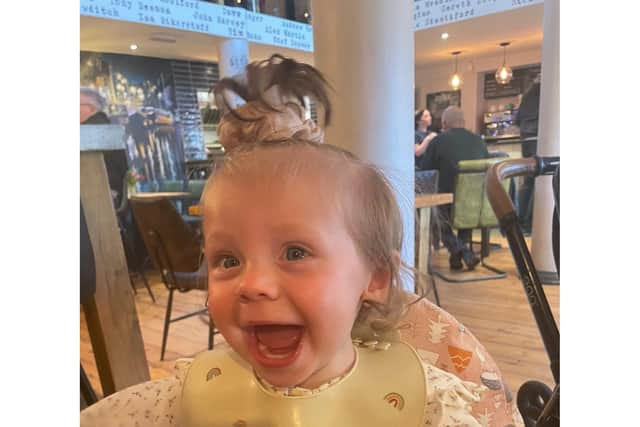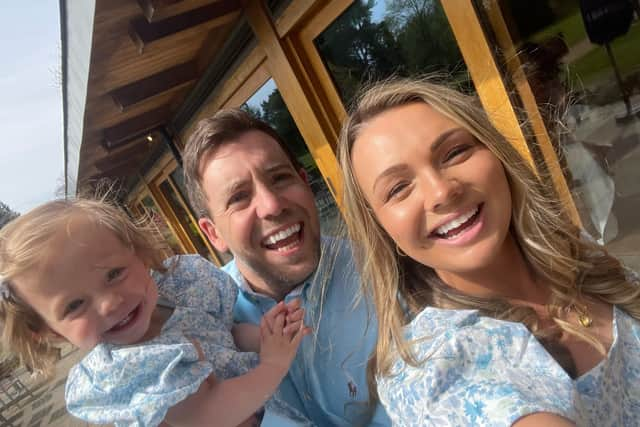Hemel family appeal for land to help build a house for baby girl with rare disease that is turning her body 'to stone'
and live on Freeview channel 276
The family of a Hemel Hempstead tot who was diagnosed rare disease is appealing for help to find land suitable for a specialist bungalow for the little girl.
One-year-old Lexi Robins from Hemel Hempstead has Fibrodysplasia Ossificans Progressiva, a disease that turns her body ‘to stone’ and needs a wheelchair-friendly home.
Advertisement
Advertisement
And doctors have said it is ‘crucial’ that she lives in a safe environment.


Her parents, Alex and Dave Robins have sold their house and are living with Alex’s mum as they wait to find a suitable property to renovate – or a plot of land to build the bungalow.
Mum Alex says that they hope to work with their occupational therapist to “create a risk-free safe environment for her to live and play, protecting her to the best of their ability – improving her quality and hopefully life expectancy”.
She is asking for anyone who has any suitable non-Green Belt land to help, as the family needs somewhere local to build on.


Advertisement
Advertisement
The couple, who also have a son called Ronnie, says that Lexi’s condition is dependent on how protected she is in her day-to-day life and any knock to her muscles could cause her body to seize up at any moment.
Alex said: “We’ve got doctors’ reports saying that it's crucial that she's kept safe and she needs to live in a safe environment.”
Lexi’s disease gradually replaces muscle and connective tissue, like tendons and ligaments, with bone.
Only one in 1 million people worldwide suffer from the condition.
